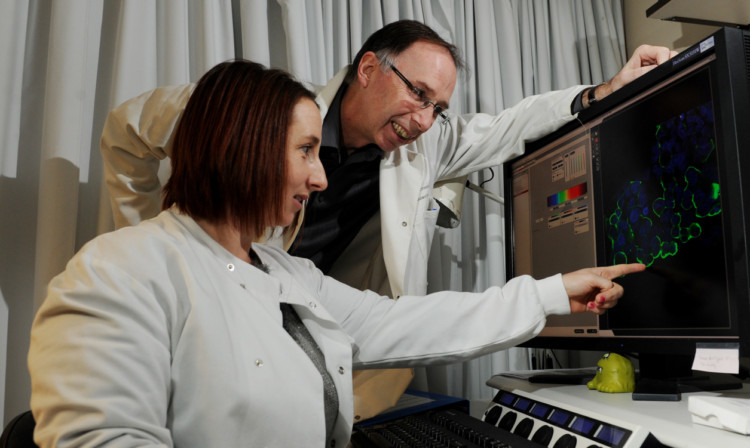Public services could be “crippled” by a dementia “time bomb” unless more money is spent on research into the disease, experts have warned.
By 2031 it is projected by charity Alzheimer’s Scotland that there will be as many as 114,000 people with dementia in Scotland, up from around 86,000 today.
Scientists and clinicians across the country are desperately trying to discover the causes of dementia so that effective treatments can be created. But the progressive disease which destroys the brain is currently incurable and irreversible.
Dr Calum Sutherland, a scientist based at Ninewells Hospital in Dundee, who has spent more than a decade researching dementia, said: “There is a time bomb of dementia issues. It is a scary story but everybody is probably aware that there are serious issues for our society.
“It’s financial. It’s about support services. It’s about research. We’re in a time of austerity on all of those things and that is on top of the fact that people are getting older because health services have become better.
“I think we have to address that in as many different ways as we can, otherwise the NHS is going to be crippled, support services are going to be crippled. It’s going to cost everybody for generations to come, if we don’t do something now.”
Dr Sutherland is principal investigator overseeing a team of scientists seeking to better understand dementia.
His father had Alzheimer’s, the most common form of dementia, which he said inspired him to devote his life to finding a cure.
Dr Sutherland said: “The experts around Scotland and the UK are working as hard as they can but for every £100 spent on cancer research, £1 is spent on dementia research.
“In a year we probably get enough to pay one week of Gareth Bale’s salary to do it, but if we could match the premier league in the research funds we would prevent this disease.
“One thing that I know about science and medicine is we will overcome this disease given the right resources and appropriate time.”
Perth’s Murray Royal Hospital plays host to the Scottish Dementia Clinical Research Network (SDCRN) where manager Emma Law works to increase the number of number of people with dementia in clinical studies.
She said: “It does sometimes feel like you’re the Cinderella service in the research world. There’s a huge amount of money going to research into cancer, quite rightly so. But why can’t the same amount of funding be put forward for dementia research?
“It’s going to help us find a cure, there’s no doubt about that. What the cure would be, I don’t know. To say there will be a cure in five or 10 years is a bit speculative, but you’re never going to find out if you don’t do the research and you can’t do the research without the money.”
Old age psychiatry consultant Dr Peter Connelly, who co-founded the SCDRN, also issued a stark warning over the impact of the growing number of people with dementia.
He said: “Independent Scotland or no independent Scotland, it doesn’t really matter, because there isn’t enough of a working population to pay for the care home needs which are predicted.
“Unless we try to reverse that by increasing the number of specialists, even voluntary people who specialise in dementia, unless we’re willing to increase that, I think we’re sunk.
“There’s a massive gap between the cost to the country and what’s actually spent on research. Dementia costs the country more than stroke and heart disease and cancer combined but the amount spent on research as a total proportion of that is miniscule.”
